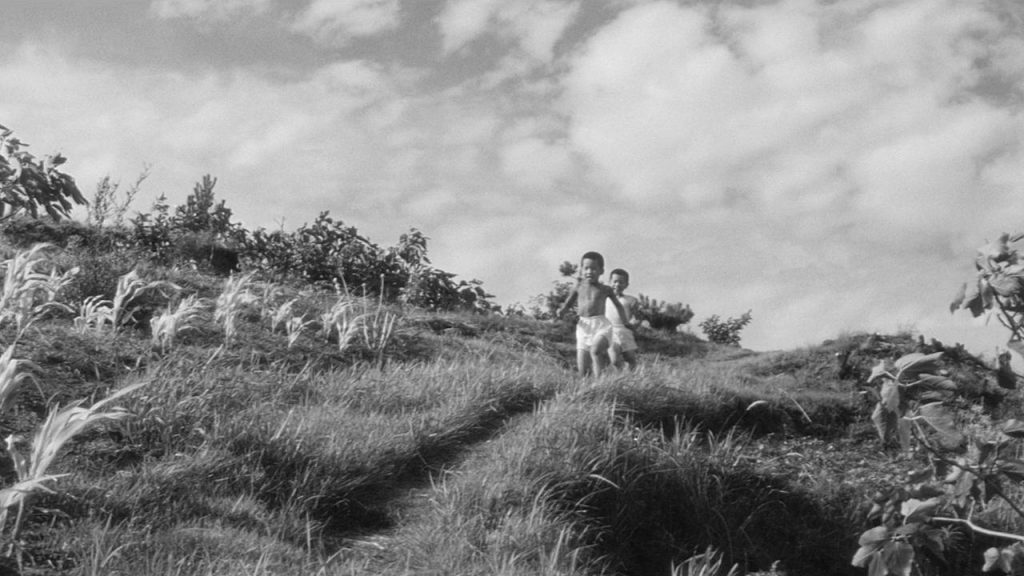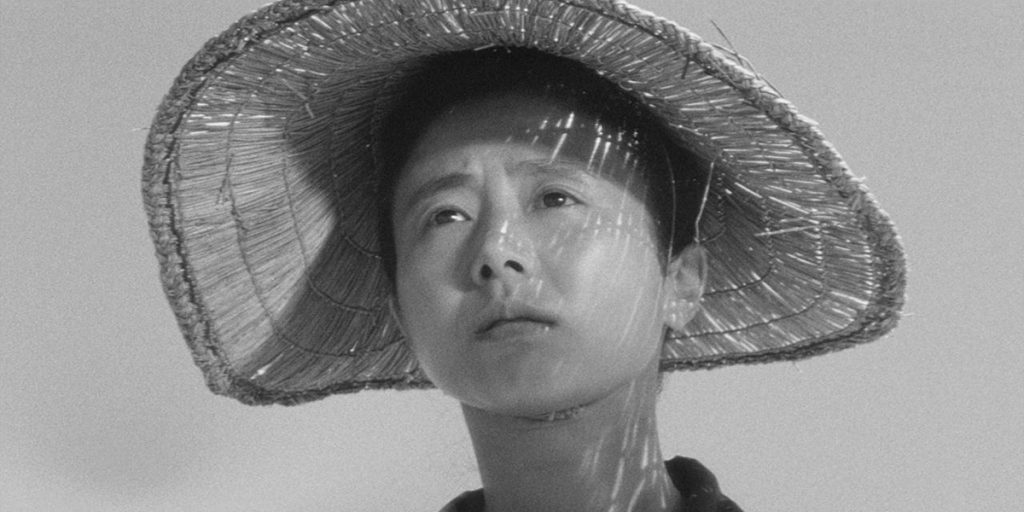The Naked Island (1960) is a movie about a family of four surrounded by the ocean and neighbouring islands. It concerns their highs, and their lows.
2020 has been the year in which I discovered something about myself. I discovered that I’m a Carly Rae Jepsen fan. This revelation came about when her album “Dedicated” unexpectedly appeared in front of me, and was consequently introduced to my ears. How the album was able to creep up on me in such a manner, I still don’t truly know, although I have for a while (perhaps cynically) suspected I was targeted by the world’s first successful piece of paid promotion. Of course there’s no way I can prove this theory, and frankly, does it even matter? I like the album. Among the songs on this album I’m fond of, there is one called “The Sound”, and, in this track, Ms Jepsen sings a chorus that goes a little like this; “I don’t need the words, I want the sound (sound sound sound sound)”, and this is a sentence I like to apply to movies. Sometimes I just want the characters to quieten down a bit, and let the world they’re in breath a little, y’know?
Thankfully, I know of a movie that does exactly that. It’s called The Naked Island. Written and directed by Kaneto Shindō (the man also credited the same on Kuroneko and Onibaba, among other flicks), The Naked Island is not quite silent, but it’s certainly not a talkie either. In fact, and rather blissfully so, if I dare say it, there is but one line of dialogue in this movie, and that is simply the phrase, “heave-ho”. If I was to provide more detail, I’d say there are approximately four sources of sound in The Naked Island: there’s the score (beautifully composed by Hikaru Hayashi), there are the sounds provided by the characters on-screen, the sound of the elements, and then the world at large that this movie inhabits (provided by Kunie Maruyama). The kicker, here, is that all these types of sounds – wind rustling crops, passing boats, water sloshing around in buckets, ducks quacking, crying, laughter, swimming, rain, and everything else is applied to the movie with absolute minimalist precision.
Imagine a conductor waving their baton around an orchestra of everyday sounds, with The Naked Island playing in front of them. The notation is simply: play this sound here to elicit this emotion, play this piece of music to reinforce this, cue that sound to draw attention to this coming moment, and so on. I think I’d break my bank to see something like that happen in the flesh, but for now imaging it is fine, especially as doing so doesn’t cost any money.

I wonder if Carly Rae Jepsen has seen The Naked Island? If she has, I wonder if she likes it as much as I do. If she hasn’t, I wonder how I’d sell her on doing so. She doesn’t know me, so it’s not very likely she would watch it simply because I hold it in high esteem. Though, credit to her, I don’t know her movie taste either. Isn’t that a bizarre thought? There may actually be a whole host of people out there who haven’t seen The Naked Island before. My goodness. Maybe, when I’m king of the world or whatever, I’ll make it a law that nobody can pass into adulthood without watching it. Although that’s probably bordering on dictatorship, and truthfully, it’s quite nice to be able to hold something so beautiful to your chest without everyone recognising what it is. Because when you couple the calculated sound placement with the staggering visuals and performances almost real enough to touch, The Naked Island truly is something to behold. In fact, it brings to my mind another “Dedicated” lyric, this time from a track named “Automatically in Love”, where The Jeps sings something that goes like this: “Right away. Right away baby, just a girl undercover and a boy with the getaway. You and me, right away baby we were automatically in love.”
Of course I’m not undercover, nor do I have a getaway car, but when I first watched The Naked Island, as corny as it may sound, I was automatically in love with it. Unfortunately, I can’t say if this movie loves me back. I’d certainly like it too, and I’d think it a weighty privilege indeed to be considered a friend of the characters inside it. However, in just 97 minutes, The Naked Island is able to make me smile, (ultimately) laugh, get teary eyed, jump for joy, sit rooted to the spot in tension, give me goosebumps, remind me of the fickleness of time and the bleakness of capitalism, as well as yearn for isolation and the smell of the ocean. Now, I admittedly don’t know much about relationships, but if someone told me they loved me and then subsequently made me feel all the feelings mentioned above within 97 minutes, I would certainly doubt their opening statement. For now though, I’m happy to unrequitedly love The Naked Island and “Dedicated” for all the emotional comfort they provide me, even if it turns out that (in the case of the latter) I was baited by an internet advert.

